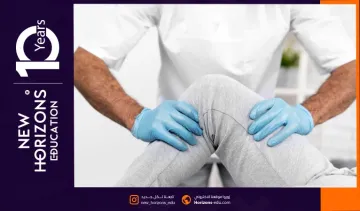
Do you want to study pharmacy in Turkey? Are you striving to become the best pharmacist in your country? Your dream can be true and your first step begins with us. In this article, we present all the details of studying pharmacy in Türkiye from A to Z, helping you gain a clear understanding of the pharmacy major and studying in Türkiye in general. Let's go.
It is the science that studies drugs and medications, their properties and compositions, how they affect humans, and their side effects. It is a medical profession that combines chemical and health sciences.
It is considered one of the oldest discovered health sciences. It was known as the profession that sought sources of treatment and healing to eliminate diseases by extracting medicines from medicinal plants. This science then developed into the manufacture of chemical medicines.
Providing medications to patients, explaining their uses and side effects.
Monitoring dosages and drug interactions.
Participating in direct patient care.
Working in pharmaceutical companies to develop and manufacture medications.
Working in research centers to develop new medications.
Promoting medications and pharmaceutical company products.
Working in regulatory bodies to monitor drug quality.
Teaching at universities and conducting academic research.
To succeed in the field of pharmacy, a specialist needs to acquire the following skills:
Deep medical and scientific knowledge.
Effective communication.
Analysis and problem-solving.
Attention to detail.
Teamwork.
Time management.
Continuous learning.
1. Clinical Pharmacy
One of the most in-demand specialties due to its direct connection to patient care and improved treatment.
2. Pharmaceutical Chemistry
Focuses on developing new drugs and improving the composition of existing drugs.
3. Nuclear Pharmacy
The use of radioactive materials in medical diagnosis and treatment.
4. Industrial Pharmacy
Developing and producing drugs on a large scale in factories.
5. Oncology Pharmacy
Advanced specialty for providing chemotherapy and improving cancer patient care.
6. Pharmaceutical Management
Developing skills in managing pharmacies or hospital teams.
7. Pharmaceutical Research and Development
Working in research laboratories to develop new therapeutic technologies.
Turkish universities possess a highly advanced scientific and technological infrastructure equipped with the best medical equipment and tools.
High-quality medical laboratories help students with practical training and conduct research and experiments.
The quality of education in Turkey is excellent, rivaling that of European universities.
The teaching staff in Türkiye is highly experienced and knowledgeable, and is well-versed in modern teaching methods.
The cost of pharmacy studies in Turkey is low, yet the quality of education is excellent.
Living in Turkey is convenient for students, as universities provide a comfortable, quiet, and suitable environment for study.
The Faculty of Pharmacy does not require international certifications or exams for admission.
Turkey places great emphasis on medical specialties such as medicine, dentistry, and pharmacy.
Universities have their own pharmacies available to students to facilitate their access to the medication they need at any time.
Yes, one of the most important advantages of studying pharmacy in Türkiye is that it is available in English, making it an ideal opportunity for international students who wish to graduate and work for global companies and institutions.
The requirements for studying pharmacy in English in Turkey are simple. Turkish universities do not require proficiency in the language for admission. Instead, they offer a preparatory program to teach it at the level necessary for study, after the student's language proficiency is tested.
The Best Turkish Universities That Teach Pharmacy in English:
|
University |
Language |
Tuition |
|
EN |
$12,000 |
|
|
EN |
$13,700 |
|
|
EN |
$15,000 |
|
|
EN |
$18,000 |
|
|
EN |
$9,600 |
|
|
EN |
$12,240 |
|
|
EN |
$12,000 |
|
|
EN |
$7,500 |
The total number of years of pharmacy studies in Türkiye is five full years, during which students learn how to formulate and prescribe medications, communicate effectively with patients, educate them, and follow up on medical cases.
Read also: Advantages of studying in Turkey
Biostatistics.
General English.
Mathematics.
Physiology.
Physics and Biophysics.
Biochemistry.
General Chemistry.
Microbiology and Immunology.
Biology, Molecular Biology and Genetics.
First Aid.
Anatomy.
Histology.
Scientific Technological Applications.
History and Ethics of Pharmacy.
Communication Skills in Pharmacy.
Organic Chemistry.
Pathology.
Analytical Chemistry.
Clinical Analytical Chemistry.
Public Health and Epidemiology.
Pharmaceutical Microbiology.
Pharmaceutical Terminology.
Pharmaceutical Botany.
Fundamentals of Scientific Research.
Pharmaceutical Chemistry.
Pharmacology.
Pharmaceutical Technology.
Prescription Drugs.
Clinical Pharmacy and Pharmaceutical Care.
Access to Scientific Data Resources.
Practical Training (Free Pharmacy).
Clinical Pharmacy and Patient Care.
General Toxicology.
Pharmaceutical Toxicology.
Pharmaceutical Biotechnology.
Herbal Medicine (Phytotherapy).
Pharmacy Management.
Cosmetology.
Ethical Principles.
Graduation Project.
Medical Devices.
Pharmaceutical Legislation.
Social Project.
Turkish Language.
The pharmacy acceptance rate in Turkey for 2025 varies between private and public universities. Public universities require a GPA of over 90% and a high score on the YÖS or SAT exam. The pharmacy admission rate in Türkiye is over 90 on the YÖS exam or 1200 or above on the SAT exam.
As for the pharmacy rate in Turkey for private universities, they allow you to study pharmacy with only a high school diploma and a GPA of no less than 70%. They do not require an English language certificate or other certificates, in order to make things easier for students. To register at private universities, you can contact us and you will receive your initial acceptance for free within one day.
Acquiring a Master's degree in Pharmacy will be an important step for you if you seek excellence in one of its fields. Turkish universities have dedicated themselves to providing the most advanced specialized programs in pharmacy, along with all training facilities, including advanced laboratories and research centers.
The duration of the Master's in Pharmacy program in Turkey is 4 years, during which students study subjects related to both theoretical and practical aspects. At the end of the program, they take an exam and submit a research thesis to be discussed before a committee. The language of study for Master's or Doctorate in Pharmacy programs in Türkiye is usually English.
Universities offering Master's and Doctorate degrees in Pharmacy in Türkiye are:
|
University |
Degree |
Language |
Fees |
|
Istinye University |
Master's |
Turkish |
7000$ |
|
Istinye University |
PhD |
English |
11000$ |
|
Altinbaş University |
Master's |
Turkish |
$19,800 |
Read more: Advantages of studying a master's degree in Türkiye
The Pharmacy Services Institute is a specialty concerned with training pharmacist support personnel. It is taught within technical education or technical universities in some countries.
It aims to prepare graduates with the knowledge and skills necessary to support pharmacists in their various fields of work.
The Pharmacy Services Institute in Turkey lasts two years, during which students study a range of subjects, including:
Fundamentals of Pharmacy.
Pharmaceutical Chemistry.
Medical Biology.
Practical Pharmacy (Laboratory Training).
Anatomy and Physiology.
Pharmacy Management.
Pharmaceutical Laws and Regulations.
Requirements for studying pharmacy in Türkiye at public universities:
High school diploma with a GPA of over 90%.
YÖS exam with a GPA of over 90%.
SAT score with a GPA of over 1300.
Translation of high school diploma and certification by the Turkish Foreign Ministry and Embassy.
Translation of transcript and certification by the Turkish Foreign Ministry and Embassy.
Translation of passport and certification by the Turkish Embassy.
Registration for the electronic university competition.
Requirements for studying pharmacy in Türkiye for private universities:
High school diploma with a GPA above 70%.
A copy of your passport.
A copy of your high school diploma in English.
A copy of your transcript.
A personal photo.
We will provide you with a list of the best private universities offering pharmacy in Turkey, along with their tuition fees.
It is one of the best universities for studying pharmacy in Turkey, as it specializes in medical specialties such as dentistry, pharmacy, and human medicine. Tuition fees for pharmacy studies are $14,000 for Turkish and $18,000 for English.
It is considered a distinguished university in engineering and medical specialties, and its goal is to achieve a high global ranking. Its project focuses on developing pharmaceutical, engineering, and medical laboratories and welcoming elite students from around the world. Tuition fees for the Pharmacy major in English are $9,600 per year.
Named after the Muslim scholar Abu al-Hayyan al-Biruni, this university specializes in medical sciences, particularly pharmacy, and offers a wide range of programs. Located in Istanbul, the university's pharmacy program costs $9,000 in Turkish and $12,000 in English.
One of the newest universities in Turkey, it has pharmacy, engineering, and chemistry laboratories, as well as numerous laboratories for all academic disciplines. Tuition fees for pharmacy studies are $12,200 in Turkish and $13,700 in English.
Even if you study in English, learning Turkish will help you in your daily life and practical training.
Find a reputable pharmacy university and check the language of instruction and tuition fees.
Make sure you master chemistry, biology, and mathematics to facilitate your studies.
Prepare thoroughly for the YÖS or SAT exam (if required).
Apply for scholarships that cover tuition and living expenses.
Choose a city that offers reasonable living costs and good services for international students.
Take advantage of training opportunities in pharmacies and hospitals to apply your skills.
Keep up-to-date with developments in the pharmaceutical field through conferences and workshops.
Connect with your professors and colleagues to build professional relationships that will help you in the future.
Set aside time for rest and recreation to avoid fatigue and maintain your focus.
Read also: Tips for international students in Türkiye
You need to determine the appropriate university for you. If this is difficult, contact us to inform you of the best universities.
Prepare the necessary documents in the required format. We can also assist you with this step free of charge.
Submit the documents to the university either through an agent, such as the New Horizons office, or by hand.
After confirming that the university has received your documents, your application is evaluated. This stage may take anywhere from one day to one week.
After the evaluation, you will receive a preliminary acceptance letter, in which the university requires payment of a portion of the tuition fees.
Immediately after paying the aforementioned fees, you will receive a final acceptance letter.
With the final acceptance, you can apply for and obtain a student visa to Türkiye.
After entering Türkiye, you must complete your registration by submitting additional documents, most importantly a high school diploma equivalency certificate.
Finally, you will receive a student card, which grants you numerous benefits, most notably discounts on transportation and libraries.
Contact us now for more information about studying in Turkey.
Pharmacy is one of the most popular majors for international students in Türkiye. It can be studied at both public and private universities. Students prefer private universities due to their ease of admission, their quality, and their superiority over public universities.
Admission to public pharmacy colleges requires a high school GPA of 80%-90%. International students must pass the YÖS or SAT exam. Private universities do not require high GPAs; a score of 50%-70% is sufficient for admission.
There are several distinguished universities that teach pharmacy, including Aydın University, Al-Biruni University, Istinye University, and Bahçeşehir University.
The minimum admission score for public universities is often 80% or higher, while admission to private universities can be as low as 65%-70%, depending on the university's policy.
I'm a passionate Web Content Writer with over 5 years of experience in creating SEO-friendly content in both Arabic and English. I specialize in writing clear, engaging, and reader-focused content that not only ranks on search engines but also speaks directly to the audiences across various industries, including healthcare, education, religion, tourism, and professional services .
After many years of working on registering thousands of students in Turkish universities, and answering an unlimited number of questions about studying in Turkey, these are the most important questions that concern students
The average salary of a cybersecurity employee in Turkey is around 62,000 TRY per month, and it can reach up to 104,000 TRY per month for experts with more than three years of experience.
The basic admission requirements for Acibadem University in 2025 are a high school diploma with a 90% average for Medicine and 60% for other majors, along with a transcript and a passport.
Ada Kent University is ranked 13th locally and 22,411th globally, according to the official 2025 Ad Scientific Index ranking.
Yes, you can get a 10% cash discount on the tuition fees for the Medicine program, reducing the cost to $19,125 instead of $25,000.
No, the requirements are easy. A high school diploma with a 60% average and a passport are sufficient, and you can apply without a language certificate.

How to study human medicine in Turkey? Is Turkey a good option for studying human medicine? You may...

Studying medicine for Iraqis in Turkey is one of the most attractive options for Iraqi studen...

Human medicine specializations in Turkey is considered one of the most important specialties in the...

How to study physiotherapy at Mudanya University? In our guide of studying physiotherapy at M...